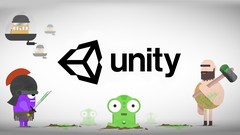
What is C Programming? A Beginner's Guide to Getting Started
C programming is often called the foundation of modern programming languages — and for good reason. It’s powerful, efficient, and forms the basis for many other languages like C++, Java, and Python. Whether you're aiming for a career in software development, game programming, embedded systems, or just want to build strong fundamentals, learning C is an excellent starting point.
In this guide, we at Dicazo Institute will walk you through the basics of C programming, its importance, and how you can get started easily.
What is C Programming?
C is a general-purpose, procedural programming language that was developed in the early 1970s by Dennis Ritchie at Bell Labs. It was designed to be simple, efficient, and close to the hardware, making it ideal for system software such as operating systems and compilers.
Key Features of C:
-
Fast and Efficient
-
Structured Programming Language
-
Low-level memory access using pointers
-
Portable (runs on various hardware platforms)
-
Extensive library support
Why Learn C Programming?
Here are some solid reasons why C should be your first programming language:
-
Builds Strong Fundamentals
C teaches you about memory management, data structures, algorithms, and how the computer actually works under the hood.
-
Foundation for Other Languages
Languages like C++, Java, Python, and JavaScript are either directly or indirectly influenced by C.
-
Used in Critical Systems
C is still used today in embedded systems, operating systems (like Linux), game engines, and IoT devices.
-
Widely Supported
There are tons of resources, tutorials, communities, and books that support learning C.
Basic Structure of a C Program
Here’s a simple example of a “Hello, World!” program in C:
#include
int main() {
printf("Hello, World!\n");
return 0;
}
Explanation:
-
#include
– Tells the compiler to include the standard input-output library. -
int main() – Entry point of every C program.
-
printf() – Prints the message to the screen.
-
return 0; – Ends the program.
What You Need to Get Started
-
A Code Editor or IDE
Some popular options are:
-
Code::Blocks
-
Dev C++
-
Turbo C
-
Visual Studio Code
-
-
A C Compiler
The most widely used is GCC (GNU Compiler Collection), which you can use on Windows, Linux, and macOS.
-
Basic Tools
At Dicazo Institute, we provide hands-on experience using real-world tools, helping students practice coding from Day 1.
Topics Covered in Our C Programming Course at Dicazo Institute
At Dicazo Institute, we offer a C Programming Course that’s beginner-friendly and career-oriented. Here's what you'll learn:
-
Introduction to Programming
-
Variables and Data Types
-
Operators and Expressions
-
Control Structures (if, switch, loops)
-
Arrays and Strings
-
Functions
-
Pointers
-
Structures and Unions
-
File Handling in C
-
Mini Projects for Practice
Tips for Beginners
-
Practice daily – Coding is a skill best learned by doing.
-
Work on small projects – Even a calculator or a to-do list helps reinforce concepts.
-
Debug your code – Understand errors rather than just fixing them.
-
Ask questions – Our instructors at Dicazo are always ready to help!
Enroll Now and Start Coding with Confidence
At Dicazo Institute, we believe in learning by doing. Our C Programming course includes:
-
Interactive lectures
-
Real-world projects
-
One-on-one mentorship
-
Certificate of Completion
If you're ready to kickstart your programming journey, there's no better place to begin than with C — and no better partner than Dicazo Institute.
Final Words
C might seem a bit low-level compared to today’s modern languages, but once you master it, no language will feel too difficult. It sharpens your logic, teaches you how computers work, and lays the perfect foundation for more advanced learning.
Join Dicazo Institute today and take your first step into the world of programming with C!
Student Review
FAQ: What is C Programming? A Beginner's Guide to Getting Started
Here are some frequently asked questions regarding What is C Programming? A Beginner's Guide to Getting Started:
1. What is C programming and why is it important?
C programming is a general-purpose, procedural programming language known for its speed and efficiency. It's important because it forms the foundation for many modern languages like C++, Java, and Python.
2. Is C programming good for beginners?
Yes! C programming helps beginners understand core programming concepts like variables, loops, memory management, and logic building.
3. How long does it take to learn C programming?
With consistent practice, beginners can learn the basics of C programming in 4 to 6 weeks. Mastery may take a few months depending on project work and complexity.
4. What can I build with C programming?
You can build operating systems, compilers, embedded systems, games, and low-level system software using C programming.
5. What tools do I need to start C programming?
You’ll need a text editor (like Code::Blocks or Visual Studio Code) and a C compiler such as GCC (GNU Compiler Collection) to write and run your C programs.
6. Is C programming still used in 2025?
Absolutely. C remains widely used in embedded systems, IoT, robotics, and systems programming because of its performance and hardware-level control.
7. Where can I learn C programming with practical guidance?
You can join hands-on, beginner-friendly courses at Dicazo Institute, where we focus on real-world projects and step-by-step learning in C programming.


